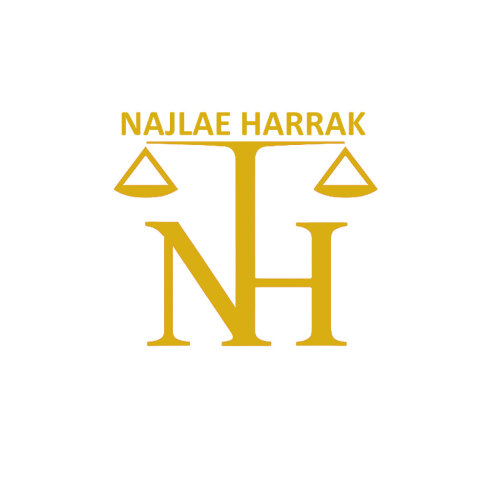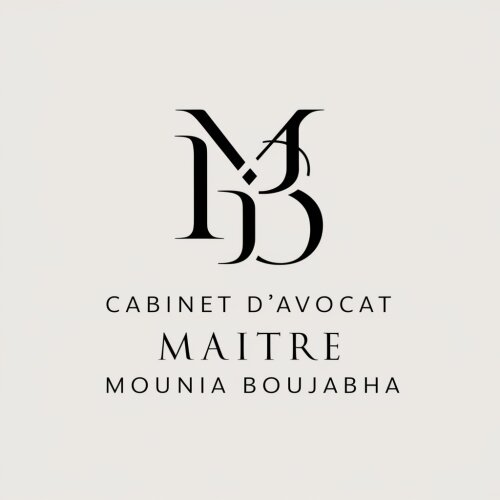Best Collaborative Law Lawyers in Morocco
Share your needs with us, get contacted by law firms.
Free. Takes 2 min.
Free Guide to Hiring a Family Lawyer
Or refine your search by selecting a city:
List of the best lawyers in Morocco
About Collaborative Law in Morocco
Collaborative Law in Morocco is emerging as a beneficial approach for resolving disputes, especially in family law, divorce, and commercial disputes. It provides a framework wherein both parties, along with their lawyers, engage in cooperative discussions to reach mutually beneficial agreements without resorting to litigation. This form of Alternative Dispute Resolution (ADR) focuses on openness, transparency, and respect, aiming to find solutions amicably that serve the best interests of all parties involved. One of its key advantages is preserving relationships by minimizing conflict and fostering a harmonious resolution process.
Why You May Need a Lawyer
There are several situations where collaborative law could be particularly advantageous, and the guidance of a lawyer is necessary. Common scenarios include divorce proceedings where spouses wish to separate amicably, business partnerships facing disputes over contracts, or family inheritance issues that require sensitive negotiation. A lawyer proficient in Collaborative Law can help facilitate productive discussions, ensure that all legal considerations are addressed, and craft agreements that all parties find satisfactory.
Local Laws Overview
The Moroccan legal system, influenced by both French civil law and Islamic law, recognizes the importance of ADR methods like Collaborative Law. Family law and commercial law are areas where Collaborative Law sees significant application. In family disputes, for instance, the Moudawana (family code) encourages mediation. The business sector also benefits from ADR through the encouragement of commercial courts to utilize mediation and negotiation before turning to litigation. Collaborative Law aligns well with local customs emphasizing dialogue and community consensus.
Frequently Asked Questions
What is Collaborative Law?
Collaborative Law is a legal process that focuses on cooperative negotiation between parties to resolve disputes without going to court.
How does Collaborative Law differ from mediation?
While both are alternative dispute resolution methods, Collaborative Law involves both parties having their lawyers present, whereas mediation uses a neutral third party to facilitate discussion.
Is Collaborative Law legally recognized in Morocco?
Yes, while not formally codified as a practice like arbitration, Collaborative Law is supported by Moroccan legal principles that encourage out-of-court settlements.
Can Collaborative Law be used for all types of legal disputes?
It is most effective in family law and commercial disputes but can be adapted to other areas where both parties are willing to work collaboratively.
What are the advantages of Collaborative Law?
Key advantages include reduced costs, faster resolution times, confidentiality, and preservation of relationships.
Do I need a lawyer for Collaborative Law?
Yes, having a lawyer is crucial to ensure your interests are represented and the agreement is legally sound.
Is the outcome of Collaborative Law binding?
Once an agreement is reached and signed by both parties, it becomes a binding contract enforceable by courts.
Can we switch to litigation if Collaborative Law fails?
Yes, parties can choose to litigate if they fail to reach an agreement through Collaborative Law, though any statements made during negotiations are typically inadmissible in court.
How long does the Collaborative Law process take?
The duration varies depending on the complexity of the dispute and the willingness of parties to reach an agreement.
What should I prepare before engaging in the Collaborative Law process?
It’s advisable to gather all relevant documents, be clear on your objectives, and have an open mind towards negotiation and compromise.
Additional Resources
For further assistance, you may consider reaching out to the Moroccan Bar Association, local legal aid clinics, the Moroccan Ministry of Justice, or non-profit organizations that specialize in conflict resolution and mediation. These bodies can provide guidance and referrals to experienced Collaborative Law practitioners.
Next Steps
If you need legal assistance in Collaborative Law, your first step should be consulting with a lawyer who specializes in this area. They can help you understand your options and guide you through the Collaborative Law process. Also, consider attending workshops or seminars on Collaborative Law to better acquaint yourself with its principles and practices.
Lawzana helps you find the best lawyers and law firms in Morocco through a curated and pre-screened list of qualified legal professionals. Our platform offers rankings and detailed profiles of attorneys and law firms, allowing you to compare based on practice areas, including Collaborative Law, experience, and client feedback.
Each profile includes a description of the firm's areas of practice, client reviews, team members and partners, year of establishment, spoken languages, office locations, contact information, social media presence, and any published articles or resources. Most firms on our platform speak English and are experienced in both local and international legal matters.
Get a quote from top-rated law firms in Morocco — quickly, securely, and without unnecessary hassle.
Disclaimer:
The information provided on this page is for general informational purposes only and does not constitute legal advice. While we strive to ensure the accuracy and relevance of the content, legal information may change over time, and interpretations of the law can vary. You should always consult with a qualified legal professional for advice specific to your situation.
We disclaim all liability for actions taken or not taken based on the content of this page. If you believe any information is incorrect or outdated, please contact us, and we will review and update it where appropriate.
Browse collaborative law law firms by city in Morocco
Refine your search by selecting a city.










